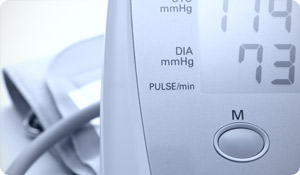
The numbers are a bit scary: two out of three people with diabetes will die from heart disease or stroke, reports the American Diabetes Association (ADA). Through their campaign Make the Link! Diabetes, Heart Disease and Stroke, the ADA and the American College of Cardiology are hoping to raise awareness of the connection between diabetes and heart disease.
For many people with diabetes, the immediate concern is keeping blood sugar levels under control to reduce complications such as nerve damage, feet problems, vision problems, or even a coma. But, according to researchers at the Johns Hopkins Bloomberg School of Public Health and other institutions, lowering blood sugar levels could also lower the risk of coronary heart disease in both people with diabetes and non-diabetics.
"In persons with diabetes, we know that traditional cardiovascular risk factors, such as hypertension and high cholesterol, should be treated aggressively. Our results also suggest that improving blood-glucose control may further reduce heart disease risk," said Elizabeth Selvin, Ph.D., lead author of the study and a postdoctoral fellow in the Bloomberg School of Public Health's Department of Epidemiology.
Selvin and her team found that Hemoglobin A1c (HbA1c)—a measure of long-term blood sugar levels--predicts heart disease risk in both people with or without diabetes. An elevated blood sugar level is characteristic of diabetes, but it wasn't clear before whether elevated glucose levels contributed independently to an increased risk of heart disease.
The researchers used data from the Atherosclerosis Risk in Communities Study (ARIC) that involved nearly 16,000 people, whose HbA1c levels were taken during clinical examinations between 1990 and 1992. ARIC researchers tracked study participants for 10 to 12 years to gather info on coronary heart disease occurrences, hospitalizations and deaths.
Among participants with diabetes, researchers found a graded link between HbA1c and increasing coronary heart disease risk. Each 1-percentage-point increase in HbA1c level was associated with a 14 percent increase in heart disease risk. Currently, the target for "good" glycemic control established by the ADA is an HbA1c value less than seven percent; however, the results of the study suggest that heart disease risk begins to increase at values even below this level.
Also, study participants without diabetes who had "high normal" HbA1c levels—approximately five to six percent—had a higher heart disease risk, even after accounting for other factors such as age, cholesterol level, blood pressure, body mass index and smoking.
Selvin says there are large, on-going clinical trials that should confirm how effective blood sugar-lowering medications are at reducing cardiovascular risk in persons with type 2 diabetes. However, other studies have also hailed the benefits of tight blood sugar control in reducing heart disease among people with type 1 diabetes, who have a 10 times higher risk of heart disease than people without the disease.
What You Can Do
To get your blood sugar levels under control and lower your risk of heart disease, the ADA recommends eating a healthy diet--low in unhealthy fats, cholesterol and sodium, but high in fiber, heart-healthy fats, and vegetables and fruit. They also recommend regular physical activity, not smoking, and taking medications to control your blood sugar, blood pressure and cholesterol levels. Finally, a low-dose aspirin pill taken daily may help.
Source: Johns Hopkins Bloomberg School of Public Health press release, "High Blood Sugar Levels a Risk Factor for Heart Disease."
References
Journal: Archives of Internal Medicine, Vol. 165 No. 16, pp. 1910-1916
Date: September 12, 2005
Study: Glycemic Control and Coronary Heart Disease Risk in Persons With and Without Diabetes
Website: http://archinte.ama-assn.org/cgi/content/full/165/16/1910
Authors: Elizabeth Selvin, Josef Coresh et. al.





